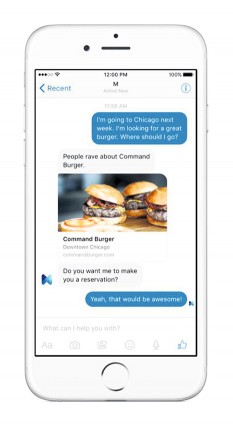It now seems a long time ago when businesspeople talked about checking the calendar on their PDA or personal digital assistant. The rather antiquated technology is now viewed at best as cute, on 1990s TV programmes, and at worst a source of great amusement.
Yet PDAs were the perfect predecessors for the virtual organisers of today because they helped set the foundation for a dependence on digital scheduling. Today, virtual personal assistants, which can essentially organise large parts of our lives, are a standard feature on smartphones, owned by nearly seven in ten of the UK population.
These “assistants”, including Google Now and Apple Siri, can practically organise our day, suggesting routes for travel, advising whether to take an umbrella, finding restaurants, answering web searches and setting up meetings. They can choose presents online, based on the information on friends’ social media profiles, and with the newest technology, they can even answer e-mails.
Research firm Gartner predicts the era of smart machines will be the “most disruptive in the history of IT” and it expects virtual personal assistants to play a crucial role.
In spite of the phenomenal technological growth, it has taken some time to get to today’s relatively helpful technology. The spread of smartphones over the last decade, combined with the increased sophistication of artificial intelligence (AI) algorithms, have been essential in the improvements made.
The launch of Siri

Facebook announced in August it was testing a new digital assistant, called M, inside its Messenger app
The key breakthrough for consumers came in 2011, when Apple added Siri, the speech interpretation and recognition interface, to its phones. Suddenly, anyone could dictate internet search terms and find a result. It was followed in 2012 by Google Now and in 2014 by Microsoft Cortana.
Each has its own strengths, including Apple’s established voice recognition and recognisable interface, and Cortana’s ability to search contacts and predict travel needs. Google Now, meanwhile, benefits from the company’s advanced search understanding and is likely to incorporate its new auto-reply system for e-mails, Smart Reply.
A plethora of other options exist on the market, such as Amazon with its Alexa system for search and music, and Baidu with Duer for arranging dining and movies, and there are companies linking voice control to connected home devices from heating and lighting to TVs.
Perhaps the most surprising approach comes from a social media giant. The new Facebook M system, which since August has been available to a test group of users, uses AI to help plan holidays, find local restaurants and make online purchases, but depends on humans to check the result and improve it if needed.
Much has been made of the potential usefulness of the different options. When Siri came out, consumers worldwide derived amusement inputting ridiculous requests, but like businesspeople, they had become frustrated that the answers they received to more straightforward questions were of very mixed quality. Now, however, Siri and its counterparts have moved on and are mainstays for many.
With advances in AI, these systems are capable of answering relatively complex questions about subjects of interest almost instantly, attempting to understand what the user needs based on their history of demands and preferences, and the requirements of others.
A Siri or Google Now user might use it to derive answers to dictated business or leisure web queries, while Cortana is attempting to differentiate itself with machine-learning algorithms that take note of the places a person travels and when, advising them of traffic and weather, or offering train and bus times to the next appointment in their calendar.
The usefulness and accuracy of all these systems is ever improved and Google claims its own technology gets less than 8 per cent of voice queries wrong.
Virtual organisers for business
For businesses, not only can the technology be used to schedule meetings, advise colleagues of late arrival or dictate e-mails, it can also completely redefine how they interact with customers, automatically answering written and voice queries.
Services such as Teneo from Artificial Solutions and the tools from Api.AI enable companies to create platforms based on AI and voice-recognition software, designed on a bespoke basis with the needs of their specific customer-base in mind.
Virtual personal assistants are set to become central in our lives, predicting and acting on many of our needs well before we express them
IBM is among the larger vendors well placed to grow in the market, given the prevalence of its Watson AI technology, with pattern-matching and predictive skills that are increasingly being deployed in professional settings from tax offices to cancer research. In 2014, IBM bought Cognea, a virtual assistant platform, to integrate into Watson.
Among the many non-technology companies seeking to work with AI firms, to offer their own systems, is Domino’s Pizza, which has an AI-based app, called Dom, developed with speech recognition firm Nuance, to guide users through the ordering process and suggest additional options. Meanwhile, HSBC, Asda and other large companies are using technology from Creative Virtual to answer queries from web customers automatically.
For most of the world’s enterprises, the crucial issue will be whether consumers rely solely on the virtual assistants already on their smartphones or whether these pave the way for a wider acceptance of different firms’ offerings.
Whichever turns out to be the case, virtual personal assistants are set to become central in our lives, predicting and acting on many of our needs well before we express them.
The launch of Siri

